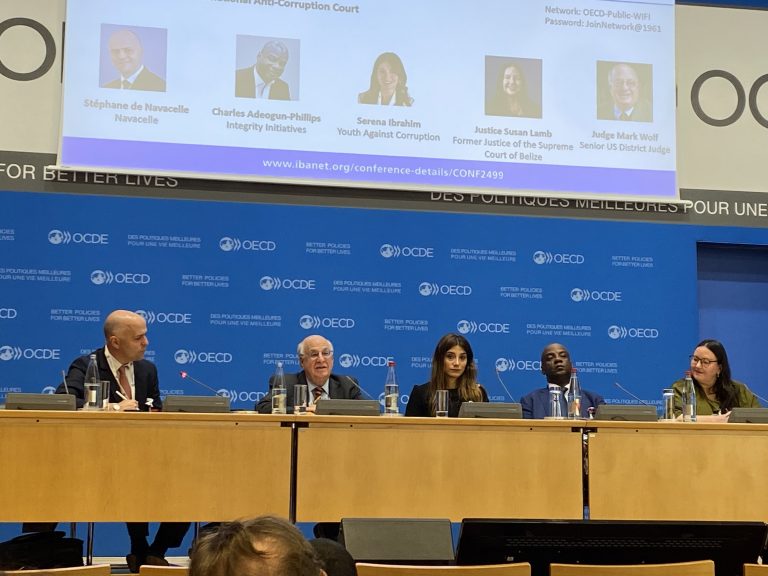On the 11 October 2021, almost ten years after its first publication on the subject[1], the Autorité de la concurrence has released for comments a new draft framework document on competition compliance programs[2] restating and enriching the five essential pillars to develop and implement such programs. Interested parties had until 10 December 2021 to participate through the proposed public consultation[3]. On 25 May 2022, the Autorité de la Concurrence published the final document, which included the main provisions of the initial draft.
This update of the framework document, which serves as a reference text for developing a compliance program[4], is an opportunity for the Autorité de la concurrence to reiterate the necessity for all economic structures to implement such programs as a safeguard against numerous risks (I), as well as to set forth the essential pillars for the development of an efficient and relevant compliance program (II). Finally, the publication of this framework document also enables the Competition Authority to insist on the crucial role played by compliance agents, including lawyers, who can intervene both in the preparation of the compliance program and in its implementation (III).
I. In order to protect themselves from the risk of competition law violations, it is now in the interest of companies to integrate compliance with these rules into their compliance program or to put in a place a dedicated compliance program
In this new framework document, the Autorité de la concurrence lists the reasons why companies should implement a competition compliance program, and the various risks to which they are exposed in the event of a violation of such rules.
While the reputational risk[5] remains significant, it is the financial risks that is the most dissuasive. The fines are often substantial. Indeed, the Apple group was fined 1.1 billion euros, as were the wholesalers Tech Data and Ingram Micro, to the tune of 76.1 million euros and 62.9 million euros respectively, after being found guilty of cartels within their distribution network and abuse of economic dependence.[6]
In fact, “the violation of competition rules, as provided for by French and EU law, may expose legal persons to significant financial penalties, up to 10%[7] of their worldwide turnover”.[8] Penalties up to 5% of the average daily turnover per day of delay may also be imposed in order to compel the offending companies to cease the infringement of which they are accused or to put in place interim remedial measures.[9]
Article L420-6 of the Commercial Code also provides for penalties of up to four years’ imprisonment and €75,000 in fines “for natural persons who have fraudulently taken a personal and decisive part in the conception, organisation or implementation of anti-competitive practices”.[10]
Initially, the draft framework document emphasised that the implementation of an adequate compliance program could ultimately reduce the impact of sanctions imposed by the Autorité de la Concurrence. The latter recalled in this sense that by allowing the early detection of potential anti-competitive practices, the compliance program offered the possibility for companies to benefit from favourable treatment in the framework of the leniency procedure provided for by IV of Article L464-2 and R464-5 et seq. of the Commercial Code.[11]
In fact, companies and associations of companies could apply for a total or partial exemption from financial penalties by informing the Autorité de la concurrence of the existence of illegal agreements and by cooperating with the latter to put an end to them.[12]
However, in the version published on 25 May 2022, the Autorité de la concurrence is considerably more concise regarding this opportunity. It simply recalls that settlement and leniency procedures are means for the company to comply.[13] Any reference to possible procedural gains has been removed.
Similarly, while in the draft the Autorité de la concurrence emphasized that following the transposition of the ENC+ Directive[14], companies’ incentive to uncover possible secret cartels was strengthened by the fact that immunity or reduction of criminal penalties may also be obtained by natural persons[15], this passage has been entirely deleted in the final version of the document.
While the Autorité de la concurrence had, in a 2017 decision[16], considered that compliance programs were not generally intended to justify a mitigation of sanctions[17], it however, considers that the development and implementation of compliance programs, which are “intended to be part of the day-to-day management of companies, particularly when they are large” [18], prevents financial risks and offers the possibility of lower penalties.
Compliance programs are therefore an essential preventive tool, in line with the proactive approach adopted by companies and encouraged by Autorité de la concurrence.
II. The Autorité de la concurrence identifies five essential pillars for an effective and useful competition compliance program
The Autorité de la concurrence recalls that a competition compliance program should be included in an overall compliance program. The latter must include all the preventive measures put in place by the company, whether in anti-money laundering and corruption, personal data protection or social, societal and environmental responsibility.[19]
According to the Autorité de la concurrence, a compliance program is only useful and effective if it prevents the risk of infringement and provides the means to detect and deal with infringements should they occur.[20] It therefore advocates for a “tailor-made program, which must be adapted to the markets, the activities and products, the internal organisation and culture, as well as the decision-making chain and the governance mode”. To elaborate such a program, the company must carry out an analysis of all its risks, leading to the establishment of a cartography of these risks.[21]
The compliance program should enable the company to anticipate new risks[22] and thus, it must regularly monitor the legislative and case law framework, as well as the decision-making practices of the competition authorities, while taking care to adapt this vigilance to the specific characteristics of the company, as well as the market in which it operates.[23]
To achieve such goal, the compliance program should be built around five pillars:
- A public commitment by the company through “a clear, firm and public statement by the management bodies, and more generally by all executives and corporate officers, on the need to respect competition rules and to support the company’s compliance program”.[24] The objective being that all its bodies act collectively. All must be aware of the existence of the compliance program and their obligation to apply it strictly and rigorously.[25].
- Where the structure and organisation of the company allows it, the Autorité de la concurrence strongly recommends that the management bodies appoint people internally responsible for management and implementation of the compliance program.[26] These responsible persons must have the clear authority and skills to carry out such a mission, but also the necessary time and resources, as well as the ability to have direct access to the company’s management bodies.[27] The final version of the framework document adds that they should have the necessary autonomy and independence to carry out their mission.[28]
- All staff and management should be provided with information, training, and awareness-raising measures[29], to ensure that they are all aware of the existence of the compliance program, its usefulness, its content, and the meaning and practical scope of the competition rules[30] as well as internal warning mechanisms.[31] Regarding training and awareness-raising on competition rules, it is necessary that “these exercises be adapted to each internal target audience, according to the professions and responsibilities exercised”.[32].
- The establishment of effective monitoring and alert mechanisms is also key to the effectiveness of a compliance program. Indeed, while control mechanisms “must ensure compliance with the compliance program at all levels of the company”[33], the whistleblowing mechanism allows “employees of the company or members of the trade association to communicate appropriately with the designated compliance officers, whether to seek their advice or to alert them of actual or potential violations.”[34]
- Finally, the compliance program must have a monitoring system which must “include the establishment of a procedure for dealing with requests for advice and alerts (what examination is made of them and what response is given), and a procedure for sanctions in the event of non-compliance with the compliance program”.[35]
III. Among the compliance actors, the Autorité de la concurrence recognises the lawyer’s role as a valuable asset to the compliance function of the company
The Autorité de la concurrence recalls that the lawyer brings “additional expertise” to the compliance policy that may be useful to the company.[36] In fact, it can “advise the company in the design of the overall compliance policy [37], and “assist in the practical implementation of compliance programs”[38] explaining the programs and making all staff aware of its objectives, particularly through the training provided[39].It may also “regularly evaluate companies’ compliance program and behaviour through legal audits to identify and correct possible malfunctions in their programs or infringements of competition law”.[40].
Finally, for medium-sized companies and small and medium-sized companies without compliance officers, the lawyer, subject to professional secrecy “can enable the outsourcing of the compliance function and related services”.[41] In fact, medium-sized companies and small and medium-sized companies are equally concerned by the challenges of competition law and compliance. Although the costs of such measures can be significant, they are offset not only by the reduced risk of prosecution, but also by the competitive advantage that a strong and effective compliance program brings to the relation with customers as well as with large companies and financial actors.











